Erasmus+ 2022 call for proposals: apply for the European Universities and the general calls
10 January 2022 | Funding - From UNICA - European Universities

Story highlights
– Open calls for funding for European Universities Initiative and Erasmus+ general call
– European Universities Initiative is structured in 2 topics: one for established alliances and other for new ones
– UNICA is available to support applications & partner search
A new year means new opportunities for UNICA universities!
If you missed the launch of the calls last November, let us remind you of some of the opportunities with forthcoming deadlines that Erasmus+ has to offer:
1– European Universities Initiative
The European Universities Initiative is one of the flagship programmes of the European Union to build a European Education Area, co-developed by Higher Education institutions, student organisations, Member States and the European Commission.
Building on the success of the first two calls from 2019 and 2020, the new Erasmus+ call for proposals to support European Universities across Europe has a record total budget of €272 million!
The objective is that these Alliances will become the universities of the future, promoting European values and identity, and revolutionising the quality and competitiveness of European Higher Education.
The current open call is structured around two topics:
Topic 1: intensification of prior deep institutional transnational cooperation
This call topic will provide support for already existing deep institutional transnational cooperation alliances including, but not limited to, the European Universities alliances selected under the 2019 Erasmus+ call for proposals.
Deadline: 22 March
Topic 2: development of new deep institutional transnational cooperation
This call topic will provide support for applicants wishing to establish new deep institutional transnational cooperation in a new ‘European Universities’ alliance.
Deadline: 22 March
Looking for partners? Discover universities and organisations searching for partners to submit proposals under European Universities next calls:
Contact the UNICA Secretariat at office@unica-network.eu to feature your institution in the Partner Search.
2- General Erasmus+ call for proposals
The European Commission has also launched the general calls for proposals under Erasmus+ call for 2022, following the adoption of the 2022 annual work programme. The programme has nearly €3.9 billion in 2022 for mobility and cooperation in education, training, youth and sport.
There are currently different open calls that might be of interest to UNICA members. We call your attention to a few:
2. 1- Capacity Building in the field of Higher Education (CBHE).
This action supports international cooperation projects based on multilateral partnerships between organisations active in the field of higher education. It supports the relevance, quality, modernisation and responsiveness of Higher Education in third countries not associated to the Erasmus+ programme for socio-economic recovery, growth and prosperity and reacting to recent trends, in particular economic globalisation but also the recent decline in human development, fragility, and rising social, economic and environmental inequalities exacerbated by the COVID-19 pandemic.
- Capacity Building in the field of Higher Education: Strand 1 – Fostering access to cooperation in higher education
This Strand is designed to attract less experienced HEIs and small-scale actors to the CBHE action to facilitate access to newcomer organisations. These partnerships should act as a first step for HEIs and organisations with a smaller operational capacity located in third countries not associated to the programme to access and increase means to reach out to people with fewer opportunities.
Deadline: 17 February
- Capacity Building in the field of Higher Education: Strand 2 – Partnerships for transformation in higher education
Projects under this Strand shall address the different state of advancement and challenges of HEIs located in eligible third countries not associated to the programme, enhance the impact of the programme and where relevant complement other sources of funding.
Deadline: 17 February
- Capacity Building in the field of Higher Education: Strand 3 – Structural reform projects
Projects under this Strand shall support efforts in third countries not associated to the Erasmus+ programme to develop coherent and sustainable systems of higher education to meet their socio-economic needs and broad ambition to create a knowledge-driven economy.
Deadline: 17 February
2.2- Jean Monnet Actions in the field of Higher Education
The Jean Monnet Action in the field of Higher Education supports Teaching and research in the field of European Union studies worldwide. EU studies should promote active European citizenship and values and deal with the role of the EU in a globalised world, enhancing awareness of the Union and facilitating future engagement as well as people-to-people dialogue.
- Centres of Excellence
Jean Monnet Centres of Excellence (CoE) are focal points of competence and knowledge on European Union subjects. They should gather the expertise and competences of high-level experts aiming to at develop synergies between the various disciplines and resources in European studies.
Deadline: 1 March
- Modules
Modules are short teaching programmes or courses in the field of European Union studies at offered at a higher education institution.
Deadline: 1 March
- Chair
Chair are teaching posts with a specialisation in European Union studies (as described above) for university professors for a duration of three years.
Deadline: 1 March
2.3- Partnerships for Innovation – Forward-Looking Projects
Forward-Looking Projects are large-scale projects that aim to identify, develop, test and/or assess innovative (policy) approaches that have the potential of becoming mainstreamed, thus improving education and training systems.
- Cross-sectoral priorities:
The goal is to support transnational cooperation projects implementing a coherent and comprehensive set of sectoral or cross-sectoral activities that either: foster innovation in terms of scope, ground-breaking methods and practices, and/or ensure a transfer of innovation (across countries, policy sectors or target groups). The partnerships should be composed of a mix of public and private organisations combining researchers, practitioners and partners with the capacity to reach policy-makers.
Deadline: 15 March
2.4- Cooperation partnerships
The primary goal of Cooperation Partnerships is to allow organisations to increase the quality and relevance of their activities, to develop and reinforce their networks of partners, to increase their capacity to operate jointly at transnational level, boosting internationalisation of their activities and through exchanging or developing new practices and methods as well as sharing and confronting ideas.
Deadline: 23 March
Discover all the open calls funding & tender opportunities here!


 Co-funded by the European Union. Views and opinions expressed are however those of the authors only and do not necessarily reflect those of the European Union or the European Education and Culture Executive Agency (EACEA). Neither the European Union nor the granting authority can be held responsible for them.
Co-funded by the European Union. Views and opinions expressed are however those of the authors only and do not necessarily reflect those of the European Union or the European Education and Culture Executive Agency (EACEA). Neither the European Union nor the granting authority can be held responsible for them.